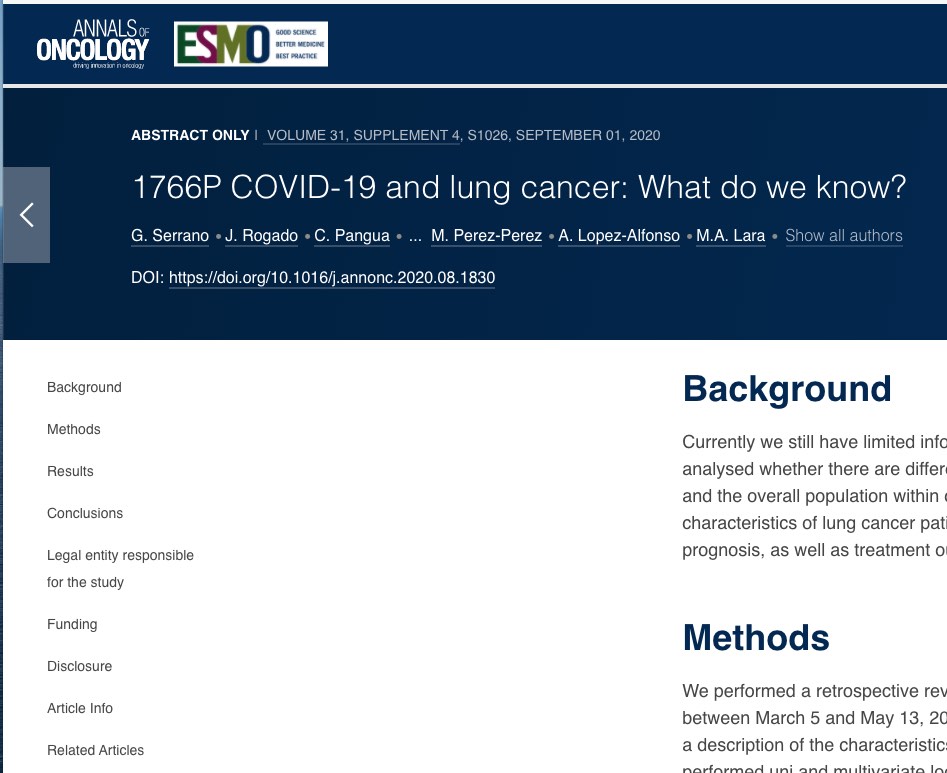Source: ESMO
Background
Currently we still have limited information on how COVID-19 infection has affected lung cancer patients. In our study, we analysed whether there are differences in terms of mortality from COVID-19 between patients diagnosed with lung cancer and the overall population within our hospital health area (320,000 people). We have also studied the most frequent characteristics of lung cancer patients who develop infection with COVID-19, and we have analysed possible factors of poor prognosis, as well as treatment outcome.
Methods
We performed a retrospective review of a total of 2216 patients admitted to Hospital Universitario Infanta Leonor in Madrid between March 5 and May 13, 2020 to identify the cumulative incidence of COVID-19 in patients with lung cancer and make a description of the characteristics of these patients, treatment outcome, risk factors for poor prognosis and mortality. We performed uni and multivariate logistic regression.
Results
22/2216 of the total number of patients diagnosed with COVID-19 in our hospital had lung cancer (0.99%). 12/22 lung cancer patients with a COVID-19 diagnosis died (54.5%) vs 300/2216 COVID-19 patients in our hospital (p<0.0001).
Lung cancer patients who died had a median age of 72 years (range of 49-84 years). Infection with COVID-19 in lung cancer patients was more frequent in men (72.73%). 18/22 (81.81%) had locally advanced or metastatic tumours.
We observed a trend towards higher mortality among patients with hypertension than among non-hypertensive patients (10/15 vs 2/7; P=0.095). We found higher mortality among patients who developed acute respiratory distress syndrome (ARDS) than among those who did not (4/4 vs 8/12; P=0.044).
There seems to be a trend towards lower mortality among patients who received treatment with the combination of hydroxychloroquine and azithromycin than among those who did not (6/14 vs 6/8; P=0.145).
Conclusions
Lung cancer patients who became infected with COVID-19 have higher mortality than the general population. It is more frequent among men and the development of ARDS results in a worse prognosis with higher mortality.
Although treatment with azithromycin and hydroxychloroquine appears to be a good treatment option, we must wait until we have more data on the safety of the combination and results in larger patient series.
Legal entity responsible for the study
The authors.
Funding
Has not received any funding.
Disclosure
All authors have declared no conflicts of interest.
Related:
Chloroquine and hydroxychloroquine for cancer therapy
Repurposing Drugs in Oncology (ReDO)—chloroquine and hydroxychloroquine as anti-cancer agents

